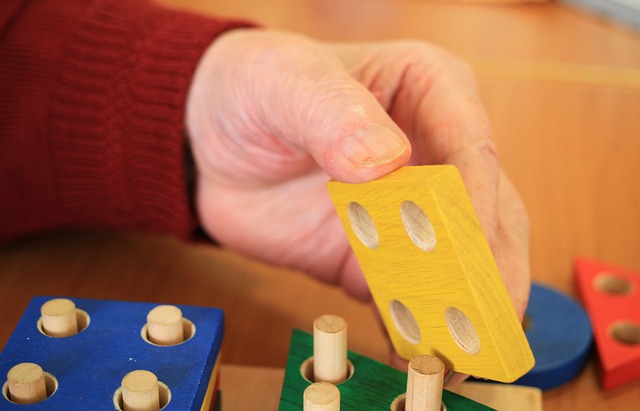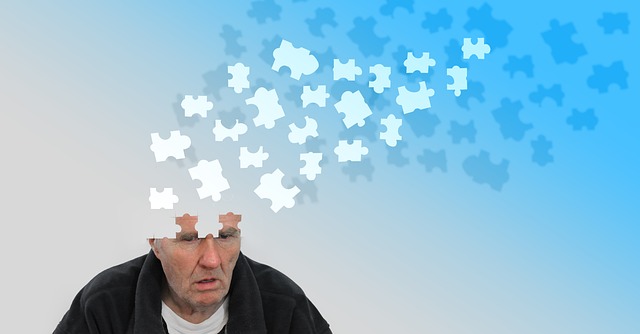Dementia is a progressive condition that affects millions of individuals worldwide. Recognizing the early signs and symptoms of dementia is crucial for timely diagnosis and appropriate medical intervention. In this article, we will provide an overview of common dementia symptoms and highlight the importance of seeking medical attention when these symptoms arise. By understanding the red flags and taking prompt action, individuals and their loved ones can ensure early intervention and access to necessary support.
Understanding Dementia Symptoms
Dementia symptoms can manifest differently in each individual, but there are common warning signs to be aware of. These symptoms may include:
- Memory Loss: Frequent forgetfulness, especially of recent events, names, and important dates. Misplacing items and struggling to retrace steps may also occur.
- Difficulty with Language and Communication: Struggling to find the right words, forgetting familiar terms, or experiencing challenges in following or initiating conversations.
- Impaired Cognitive Function: Decline in cognitive abilities, such as difficulty with problem-solving, decision-making, and abstract thinking.
- Disorientation: Becoming confused about time, place, and people. Losing track of dates, seasons, or getting lost in familiar settings.
- Changes in Mood and Behavior: Exhibiting rapid mood swings, increased irritability, anxiety, depression, or experiencing uncharacteristic personality changes.
- Decreased Concentration and Focus: Finding it challenging to concentrate on tasks, complete familiar activities, or maintain attention for an extended period.
When to See a Doctor
It is essential to consult a healthcare professional if you or your loved one experience the following symptoms:
- Persistent or Worsening Memory Loss: If memory problems significantly interfere with daily life and affect one’s ability to perform routine tasks, it’s time to seek medical advice.
- Noticeable Decline in Cognitive Abilities: Difficulty with problem-solving, decision-making, and other cognitive functions should not be overlooked, especially if they worsen over time.
- Communication Difficulties: Struggling to express thoughts or understand conversations can be indicative of an underlying cognitive impairment and warrants medical evaluation.
- Changes in Mood and Behavior: Drastic shifts in mood, uncharacteristic personality changes, or emotional instability should be brought to the attention of a healthcare professional.
- Disorientation and Getting Lost: Becoming disoriented, experiencing difficulty in recognizing familiar places, or frequently getting lost are red flags that should prompt a medical assessment.
- Impact on Daily Functioning: If dementia symptoms significantly affect one’s ability to perform everyday activities, such as managing finances, maintaining personal hygiene, or preparing meals, it’s crucial to seek medical attention.
The Importance of Early Diagnosis:
Seeking medical evaluation at the first sign of dementia symptoms is vital for several reasons:
- Accurate Diagnosis: Medical professionals can conduct comprehensive assessments, including cognitive tests, imaging scans, and medical history evaluations, to determine the underlying cause of the symptoms and provide an accurate diagnosis.
- Treatment and Support: Early diagnosis allows for timely intervention and access to treatment options that can help manage symptoms, slow disease progression, and enhance the quality of life.
- Care Planning: Early diagnosis enables individuals and their families to plan for the future, make informed decisions regarding care options, and engage in support services.
- Support Services: Early diagnosis facilitates the engagement of support services, such as counseling, caregiver support groups, and community resources, which can provide emotional and practical assistance.
Conclusion
Recognizing the signs of dementia and seeking medical attention when symptoms arise are crucial steps towards early diagnosis and appropriate management. Memory loss, cognitive decline, language difficulties, and changes in mood or behavior should never be ignored.
It’s important to note that while these symptoms may be indicative of dementia, they can also be caused by other medical conditions. Therefore, a comprehensive assessment by a qualified healthcare professional specializing in memory disorders is crucial for an accurate diagnosis.
By consulting a healthcare professional promptly, individuals and their loved ones can receive the necessary support and access resources to navigate the challenges associated with dementia. Early diagnosis allows for personalized care planning, implementation of treatment strategies, and the opportunity to maximize the quality of life for those affected.
Image by Gundula Vogel from Pixabay
Dementia
-

Recognize the Dementia Symptoms: When to See a Doctor
Dementia is a progressive condition that affects millions of individuals worldwide. Recognizing the early signs and symptoms of dementia is crucial for timely diagnosis and appropriate medical intervention. In this article, we will provide an overview of common dementia symptoms and highlight the importance of seeking medical attention when these symptoms arise. By understanding the…







Leave a Reply